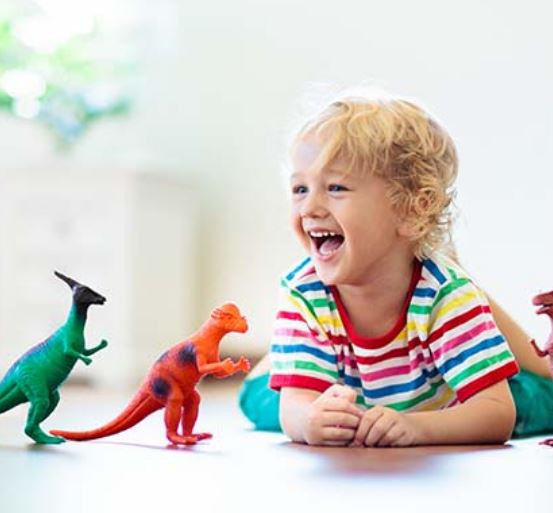The Role of Play in Child Development: An Essential Perspective for Parents and Educators
As parents and educators, we often find ourselves caught up in the hustle and bustle of daily life—juggling schedules, meeting deadlines, and ensuring that children are academically prepared for the future. In this fast-paced world, it’s easy to overlook one of the most fundamental aspects of childhood: play. Yet, play is not just a frivolous pastime; it is a cornerstone of healthy development. From fostering creativity to building social skills, play is an essential tool that shapes children into well-rounded individuals. In this blog, we’ll explore the profound role of play in child development and why it deserves a central place in both parenting and education.
What Is Play, and Why Does It Matter?
Play is often defined as an activity that is freely chosen, intrinsically motivated, and enjoyable. It can take many forms—building blocks, pretend games, outdoor adventures, or even simple daydreaming. While it may seem like mere fun, play is a child’s way of exploring the world, experimenting with ideas, and making sense of their experiences.
Research consistently shows that play is critical for cognitive, emotional, social, and physical development. According to the American Academy of Pediatrics, play is so important that it should be considered a “developmental necessity.” It’s not just a break from learning; it is learning. Through play, children develop problem-solving skills, emotional resilience, and the ability to collaborate with others—skills that are essential for success in school and beyond.
Cognitive Development: Building the Brain Through Play
One of the most significant benefits of play is its impact on cognitive development. When children engage in play, they are actively constructing knowledge and understanding. For example, building a tower with blocks teaches them about balance, gravity, and spatial relationships. Pretend play, such as playing “house” or “doctor,” allows children to practice language skills, think abstractly, and explore different roles and perspectives.
Play also stimulates creativity and imagination. When children invent stories, create art, or design games, they are exercising their brains in ways that structured activities often cannot replicate. This kind of creative thinking is not only enjoyable but also lays the foundation for innovation and problem-solving later in life.
Moreover, play helps children develop executive function skills, such as planning, organizing, and self-regulation. Games with rules, like board games or team sports, require children to follow instructions, take turns, and manage their emotions—all of which are crucial for academic and life success.
Emotional Development: Learning to Navigate Feelings
Play is a safe space for children to express and process their emotions. Whether they’re acting out a challenging situation with dolls or running around to release pent-up energy, play allows children to explore their feelings in a way that feels natural and non-threatening.
For instance, a child who is nervous about starting school might use pretend play to rehearse the experience, helping them feel more prepared and confident. Similarly, rough-and-tumble play can help children learn to manage aggression and develop self-control. By engaging in play, children learn to identify and regulate their emotions, which is a key component of emotional intelligence.
Play also fosters resilience. When children face challenges during play—whether it’s figuring out how to share toys or overcoming a difficult level in a video game—they learn to persevere and adapt. These experiences build confidence and a growth mindset, teaching children that setbacks are opportunities for learning.
Social Development: Building Relationships Through Play
Play is inherently social, even when children are playing alone. It provides opportunities for children to practice communication, cooperation, and conflict resolution. Group play, such as team sports or collaborative games, teaches children how to work together, negotiate roles, and respect others’ perspectives.
Through play, children also develop empathy. Pretend play, in particular, allows them to step into someone else’s shoes and see the world from a different point of view. This ability to understand and share the feelings of others is a cornerstone of healthy relationships.
Furthermore, play helps children build friendships. Shared play experiences create bonds and memories that form the foundation of social connections. Whether it’s a game of tag on the playground or a shared interest in building LEGO structures, play brings children together and helps them feel a sense of belonging.
Physical Development: Moving and Growing Through Play
In an age where screens often dominate children’s attention, physical play is more important than ever. Running, jumping, climbing, and dancing are not just fun—they’re essential for developing gross motor skills, coordination, and overall physical health.
Outdoor play, in particular, offers unique benefits. It exposes children to fresh air, sunlight, and nature, which can improve mood and reduce stress. Activities like digging in the sand, climbing trees, or playing catch also help children develop fine motor skills and hand-eye coordination.
Physical play also promotes a healthy lifestyle. Children who engage in active play are more likely to develop a lifelong love of movement, reducing their risk of obesity and related health issues. By encouraging physical play, parents and educators can help children build strong, healthy bodies.
The Role of Parents and Educators: Supporting Play in a Busy World
Given the undeniable benefits of play, how can parents and educators ensure that children have ample opportunities to engage in it? Here are a few practical tips:
- Prioritize Unstructured Play: While organized activities have their place, children also need time for unstructured, child-led play. This allows them to follow their interests and use their imagination freely.
- Create a Play-Friendly Environment: Provide children with open-ended toys and materials, such as blocks, art supplies, and dress-up clothes, that encourage creativity and exploration.
- Encourage Outdoor Play: Make time for outdoor activities, whether it’s a trip to the park, a nature walk, or simply playing in the backyard. Nature offers endless opportunities for discovery and adventure.
- Be a Play Partner: Join in your child’s play from time to time. Not only does this strengthen your bond, but it also shows them that play is valuable and enjoyable at any age.
- Advocate for Play in Schools: Educators can incorporate play-based learning into the classroom, ensuring that children have opportunities to learn through hands-on, interactive experiences.
Conclusion: Play as the Foundation for Lifelong Learning
In a world that often prioritizes achievement over exploration, it’s easy to underestimate the power of play. Yet, play is not a luxury—it’s a necessity. It is through play that children learn to think, feel, connect, and grow. As parents and educators, we have the privilege and responsibility to nurture this vital aspect of childhood.
So, the next time you see a child immersed in play, take a moment to appreciate the profound learning that’s taking place. Whether they’re building a fort, pretending to be superheroes, or simply running around with friends, they’re developing the skills and qualities that will serve them for a lifetime. Let’s celebrate play, protect it, and ensure that every child has the opportunity to experience its magic. After all, play is the work of childhood—and it’s some of the most important work they’ll ever do.






